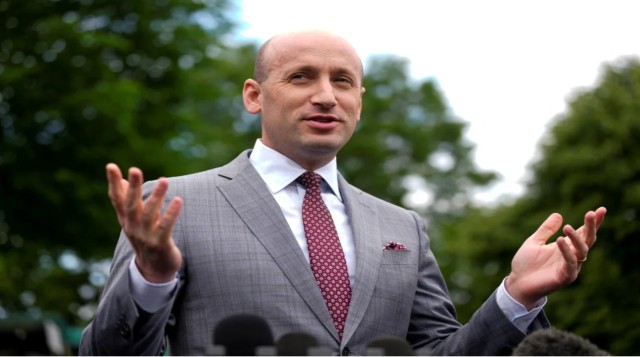
White House deputy chief of staff for policy Stephen Miller speaks to the media outside the White House on Friday, May 9
President Donald Trump is reportedly considering suspending habeas corpus as part of his aggressive immigration crackdown. Two sources close to the matter revealed that Trump has been personally engaged in high-level talks exploring the idea.
What Is Habeas Corpus?
Habeas corpus is a legal safeguard that protects people from unlawful detention. It allows individuals to challenge the legality of their imprisonment in court. Removing it would mean people could be detained without the right to appear before a judge.
Trump Aide Confirms Consideration
Stephen Miller, a top Trump advisor and architect of his immigration policy, confirmed the administration is “actively looking at” suspending habeas corpus. Miller linked the decision to how courts handle challenges to Trump’s immigration moves. “It depends on whether the courts do the right thing or not,” he said in a public statement.
Trump’s Hints Point to Extreme Measures
Although Trump hasn't directly used the phrase “habeas corpus” in public, he has hinted at using extraordinary powers. On April 30, he told reporters there are “very strong ways” to counter legal blocks on his immigration policies. He cited unnamed past presidents who took similar steps during crises.
Legal Experts Push Back
Legal scholars are warning that this would be a historic and dangerous step. Elie Honig, a former federal prosecutor, stated, “Everything Miller says about suspending habeas corpus is wrong.” The U.S. Constitution only allows suspension in cases of rebellion or invasion that pose direct threats to public safety.
Is There a Real Invasion?
The Trump administration argues that illegal immigration at the southern border amounts to an “invasion.” They’ve used this logic to justify skipping due process for migrants. This claim also underpins their defense of invoking the Alien Enemies Act, a centuries-old law that allows quick deportations during wartime.
But courts aren’t buying it.
Even judges appointed by Trump have rejected the argument. Their rulings note there is no evidence the U.S. is under invasion by a foreign military power—something required under the law.
Enemy Combatants Inside the U.S.?
CNN previously reported that the administration is exploring whether suspected cartel members and gang affiliates can be labeled as “enemy combatants.” This label would make it easier to detain individuals and harder for them to challenge their detention.
If habeas corpus were suspended, it would give the government unchecked power to detain anyone—including migrants—without a legal challenge.
Historical Use of Habeas Corpus Suspension
Legal experts stress that the writ of habeas corpus has only been suspended during extreme emergencies. For example, during the Civil War or World War II. George Mason University law professor Ilya Somin said, “Only actual war or invasion, narrowly defined, justifies it.”
Does Congress Need to Approve?
While the Constitution doesn't clearly require congressional approval to suspend habeas corpus, many legal scholars argue it should. The late Justice Antonin Scalia also emphasized this in a past dissenting opinion.
Somin noted that even in the 1990s, some U.S. states tried to declare illegal immigration an invasion to take enforcement into their own hands. Every time, courts ruled against them.
Mounting Tension Between Trump and the Judiciary
The Trump administration has repeatedly clashed with the judicial branch. Trump has personally criticized judges. Stephen Miller called unfavorable rulings a “judicial coup.” Their view is that courts are blocking efforts to enforce immigration laws.
Chief Justice John Roberts recently defended judicial independence, reminding the public that the courts are a coequal branch of government. “The judiciary checks the excesses of Congress or the executive,” Roberts said.
The Bottom Line
The Trump administration is navigating dangerous constitutional waters by even considering the suspension of habeas corpus. While framed as an immigration control tool, the move could undermine fundamental civil liberties. Legal experts are clear: such a step would likely trigger fierce legal battles and could shake the foundations of American democracy.















